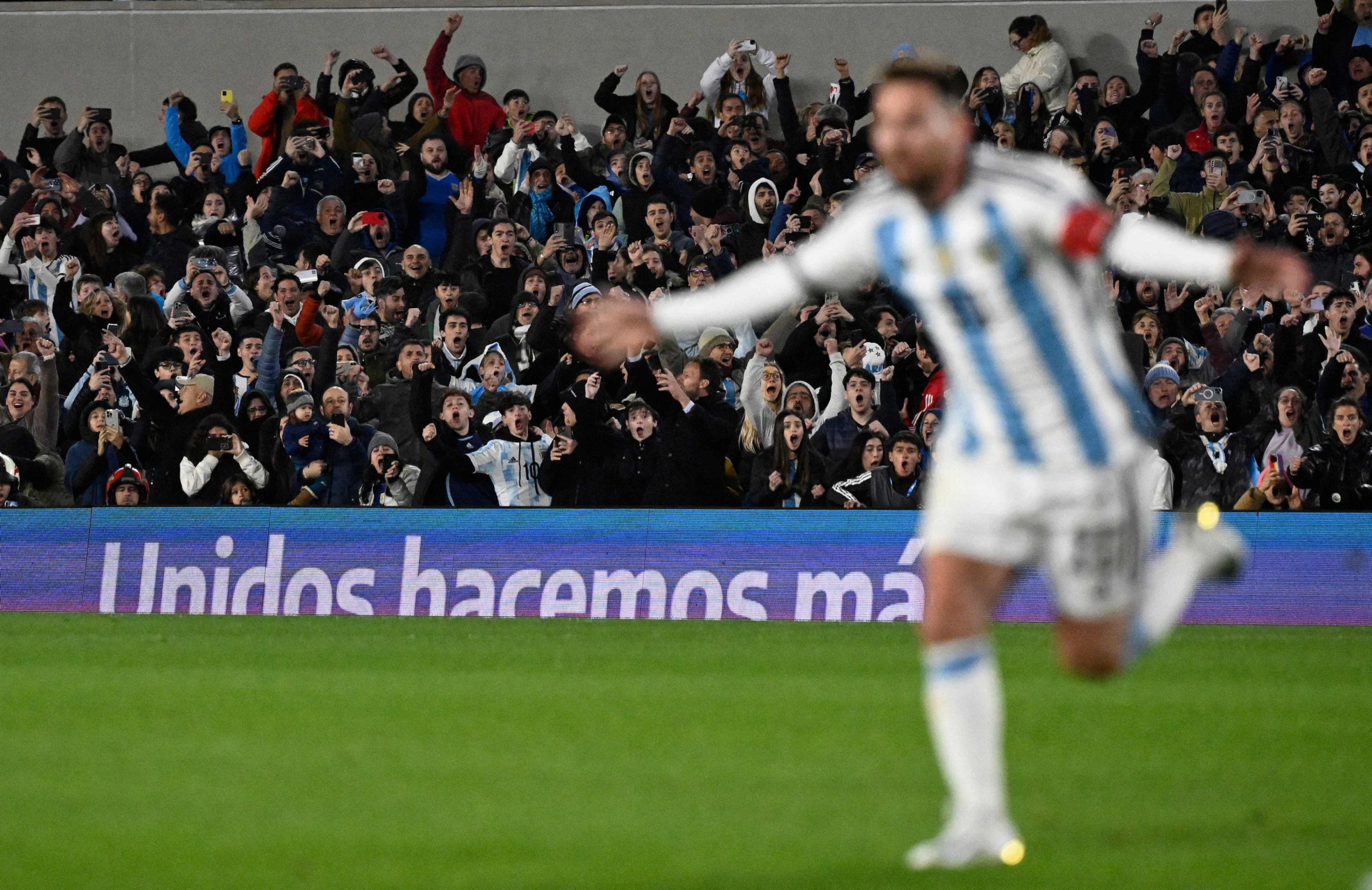© Turkuvaz Haberleşme ve Yayıncılık 2025
In South America, where football holds a special place in the hearts of people regardless of social class, the opportunity to watch beloved stars such as Lionel Messi has become increasingly out of reach for many due to soaring ticket prices. David Salazar reports from various regional bureaus on this issue.
During the Sept. qualifying round for the 2026 World Cup, ardent fans across the continent grumbled over the cost of seeing their favorite team play.
"In my case, it is impossible" to afford a ticket. "One can't enjoy it," said Pablo Gonzalez, 49, a maintenance worker at a university in the Colombian town of Barranquilla, where his country will play Uruguay on Thursday.
The average ticket price for the match is $102, in a country where the minimum monthly wage is $270.
According to an Agence France-Presse (AFP) tally the tickets are the second highest in the region for the qualifiers.
In Argentina, victors of the 2022 World Cup, fans hoping to see Messi in action were left disappointed after the football federation set ticket prices for Thursday's match against Paraguay at an average of $120.
The country is battling annual inflation of 120% and poverty levels of 40%.
Argentina's football federation has introduced a subscription program giving preferential access to match tickets. The "Gold" category costs $14,000 for a three-year pass with a slew of benefits.

Even Argentina coach Lionel Scaloni commented on how much it had cost him to buy tickets for his whole family.
"It cost me a lot, like everyone else. But who am I to set the price of tickets? If it was up to me, let people go for free," he told a press conference.
"What can I do? I can't do anything about it."
Some prices are making "something popular like football exclusive," complained fan Candela Thompson to state news agency Telam.
In Brazil, prices have shot up over the past month, with tickets going from an average of $63 dollars to $97 for Thursday's match against Venezuela in central Cuiaba.
Chilean captain Arturo Vidal, considered a footballer of the people due to his humble background, has also complained.
"Tickets are expensive. I have already told the president (of the football association) to lower them a bit, we need a full stadium," Vidal said on social media before a match against Colombia in September.
According to the Chilean media, unlike in previous qualifiers, it took several days for tickets to sell out.
In Uruguay, football authorities admitted they had erred after high prices left thousands of seats empty for a match against Chile in September.
"We made a mistake," said the country's football association president Ignacio Alonso in remarks to local media.
"The proof is that the stadium should have sold 40,000 tickets, and only sold about 31,500."
After the "rejection of the prices," he lowered ticket costs slightly. The cheapest spots for a match against Brazil on October 17 are now going for $22 dollars, $3 dollars less than the previous game.
